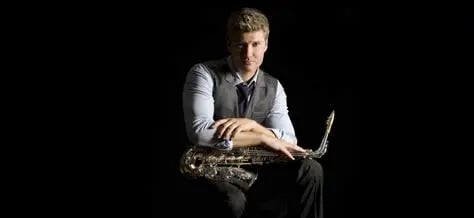Latest Michael Lington project is about the classics
By Jim Dail
8/14/20253 min read


When Michael Lington began his foray into musicianship, he started as a young child on the piano and moved on to clarinet.
“I wasn’t great on the piano,” said Lington, who will perform Saturday at Wilson Creek Winery to kick off the Sunset Jazz in the Vines concert series. “I played good enough to get a start.”
He wanted to play drums and wound up instead joining a choir, eventually moving on to the clarinet.
“My dad played sax and clarinet so he said to play the clarinet so he could help me,” he said. “By the time I was a teen, the clarinet wasn’t as cool so I went with the sax.”
However, learning a little piano came in handy.
“When I was staring out and played with Bobby Caldwell I needed to play a little keyboard, as well as the sax,” he said. “I also write some of my songs on the piano.”
This time around, Lington has not been doing as much writing, with his newest album, “A Song For You,” being made up of timeless standards that he has always been enamored with. That doesn’t mean he wasn’t being creative.
“I wasn’t focusing on this being an album of covers, but instead I wanted to make it sound like a classic album,” he said. “I wanted to make the songs unique to my sound, not just re-record them as they were.”
The album features such “singer and songwriter” era hits as “You’ve Got a Friend,” “Still Crazy After All These Years,” “She’s Always a Woman” and “Nobody Does it Better.”
“These songs were out about 40 years ago or so and they still don’t seem to wear out,” he said. “We all have our own favorites from that era.”
While many of the songs are among Lington’s favorites, it wasn’t simply a collection of his all-time favorites.
“I put a lot of thought into the selection of the songs and I tried to pick some songs off the beaten path,” he said. “As it turns out, a lot of people never knew who did some of these songs but they knew the melodies.”
Yet, for an instrumentalist, one of Lington’s great concerns was to not be so obvious about the songs.
“It’s important you don’t give away what it is,” he said. “Otherwise, it’s just a note for note replication. I wanted it to be something unique, even if it was just something in the middle of a song that wasn’t in the original. Maybe it was a jam session as the solo, or maybe just using an orchestra, which the original versions didn’t have.
Then again, as Lington points out, it cant be too different or else it’s lost in translation.
“It’s a fine line between getting off the song and losing the essence of the song,” he said. “As a jazz artist, I can’t afford to lose the melody.”
He also gives a lot of credit to Dave Koz, one of the executive producers of the album.
“When you work with a producer you have to trust them and know that where they come from is a pure place,” he said. “Dave’s instincts are great and he had a lot to do with how the album came out.”
Some of it was just a matter of listening and agreeing with the progression. Other times, according to Lington, it was the exact opposite.
“I’d do a song and he’d say, ‘Yeah, I’m buying it,’” he said. “Then other times it was, ‘No, I’m not feeling this one.’ It’s the performance that separates Musak from a cover album.”
So is it just a feeling, a certain vibe so to speak?
“Yeah, he told me to find that place, that zone and feel the emotion,” he said. “It’s just a point of view. It’s that way with everything, finding the right zone or niche. I just started my own line of cigars, and they’ve done well. Even Arnold Schwarzenegger has bought some. I found that zone.”
That said, Lington knows that recording cover songs has to be a rare thing.
“It can come back to bite you,” he said. “If you do too many covers then what’s the difference between you and anyone else.”
So, the next album will have to be a change of pace.
“My next album has to be original,” he said. “I can’t become an artist that just does previously recorded music. If that happens then the signature sound is gone.”
